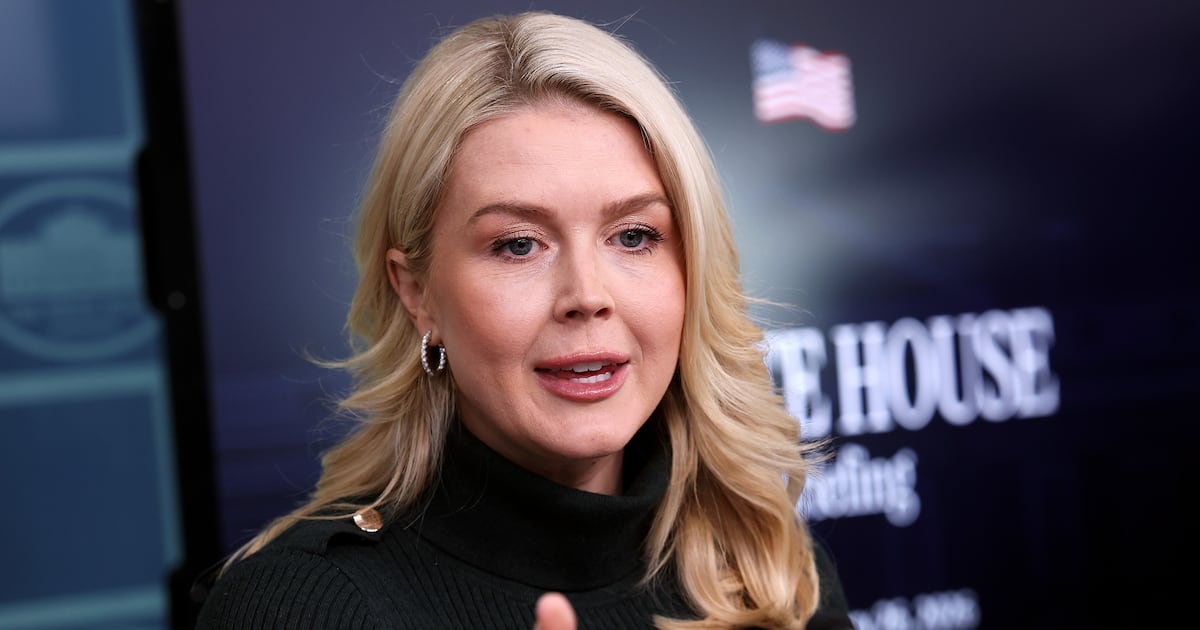You know what they say about lies, damn lies, and statistics. If the findings of a new USA TODAY/Ipsos poll are correct, Florida Gov. Ron DeSantis might want to find a term other than “woke” to define the enemy of his culture war.
But a deeper dive shows the debate is more complicated than most headlines might indicate.
According to the survey, a majority (56 percent) think “woke” means “to be informed, educated on, and aware of social injustices,” while 39 percent believe it means “to be overly politically correct and police others’ words.” At a minimum, this suggests culture warriors on the right have failed to make the term woke an effective political pejorative, the way that the word “liberal” became a drag on Democrats beginning in the 1980s.
Here’s where things get confusing. Forty percent of survey respondents said they would perceive being described as woke as an “insult,” while just 32 percent said they’d consider it a “compliment” (26 percent of respondents said they didn’t even know what the term meant).
It’s impossible to know how many people favor the word woke simply because it sounds better than being asleep. And because this was not an open-ended question, we can only guess as to why some people who view the word positively would feel insulted to have that label attributed to them. This is to say, the findings are curious.
This is just one poll, so the usual caveats apply. But, assuming the overall thesis is correct, Americans generally view the term woke in a favorable light. And this, in turn, suggests that Republicans are strategically unwise to lump so many culture war complaints under this umbrella.
But are they being unwise?
There’s a huge gap between what applies to the general public and what applies to the Republican electorate. For example, according to this survey, 56 percent of Republicans have a negative impression of the word woke. You can see why someone focused on winning a Republican primary might simply ignore this poll.
But does this mean that by criticizing wokeism in a primary, Republicans are setting themselves up to lose a general election?
Not necessarily.
If you assume that the 78 percent of Democrats who have a favorable opinion of the term are probably “ungettable” for a Republican like DeSantis—and that the presumably “gettable” independents are split over the term (51 percent have a positive view, while 45 percent have a negative view)—you can understand why DeSantis will probably keep bragging about how Florida is “where woke goes to die.”
A deeper question is whether the actual ideas and policies that are generally lumped under the woke umbrella are more or less popular with the public than is the term itself.
Last year, DeSantis took a lot of grief over the so-called “Don’t Say Gay” bill; but as Politico reported around the same time, 51 percent of people polled supported “‘banning the teaching of sexual orientation and gender identity from kindergarten through third grade’ while 35 percent are opposed.” That’s not a landslide but, in terms of public opinion, he’s on the majority’s side.
The new USA TODAY/Ipsos poll suggests other examples of wokeism are still a ways away from being “popular.” For example, just 36 percent supported “Allowing people to identify as something other than man or woman on government documents, such as birth certificates, passports, or drivers licenses.”
Likewise, only 36 percent of respondents supported “Using gender-neutral pronouns to describe someone, meaning not he/him or she/her.”
Again, these numbers are not surprising when compared to other past surveys.
For example, according to a YouGov survey from 2022, more Americans oppose “allowing parents to provide their transgender teenagers with puberty-blocking drugs” (44 percent oppose, 29 percent support, and the rest are unsure). Likewise, more Americans oppose allowing student athletes to play on sports teams “that match their gender identity” (49 percent oppose, 29 percent support, and the rest are unsure).
Progressives who live in ideological bubbles—where their ideas are rarely challenged and where dissent is strictly policed—might assume these policies are more popular than they are. But when you believe you’re on the “right side of history,” if you want to win, you still need to persuade others to come around to your side.
Like it or not, when it comes to a lot of hot-button culture war issues, at least in 2023, it is DeSantis and Republicans who find themselves in the majority of public opinion.
On the other hand, the new USA TODAY/Ipsos poll comes with a warning for DeSantis and other right-leaning culture warriors. Respondents opposed the government banning some woke-associated policies, including prohibitions on the use “Latinx” in government documents (57 percent) and forbidding corporations from mandating employee diversity training (66 percent). There’s nothing inherently woke about not wanting books banned from classrooms, but GOP efforts to do so are extremely unpopular (76 percent overall—and a whopping 66 percent among Republicans).
This particular finding suggests that one of DeSantis’s central selling points in a GOP primary (that he was able to competently use the force of governmental power to wage and win a culture war) could be problematic for him.
Coercion, it seems, remains broadly unpopular. People don’t want to be shamed or canceled by the woke mob—but they also don’t want to be told by the heavy hand of the government how to behave. In both cases, someone is wagging their finger at the public, and they don’t much care for it.
In my estimation, that is the finding that Ron DeSantis should be concerned with. By labeling everything he opposes as “woke”—he’s left the word without a meaning (or at least the meaning he intends). And by enlisting the force of government to battle wokeism, he risks earning the “Ron DeSanctimonious" nickname Trump bestowed on him.
This may be one of those rare times when the general public would prefer a politician who leads rhetorically. Indeed, going forward, the shrewd political move may be for DeSantis to employ a little more talk—and a lot less action. Don’t just stand there, do nothing!









